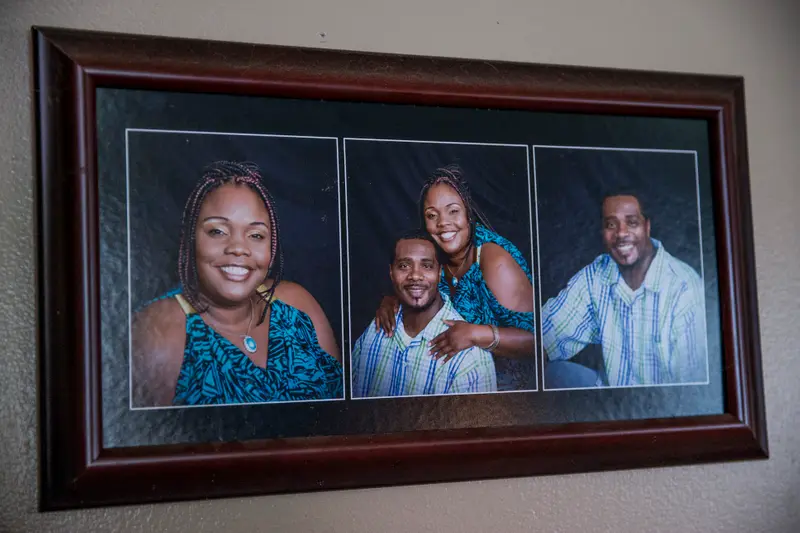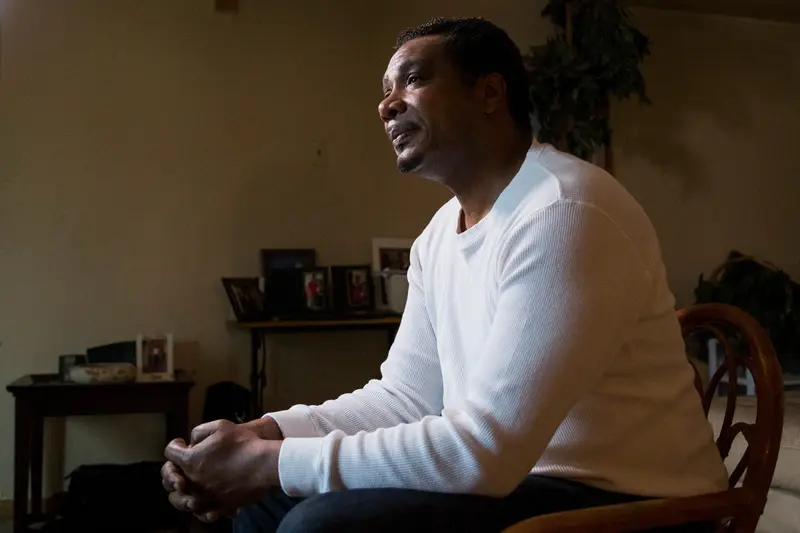This article was produced by the South Bend Tribune, a former member of ProPublica’s Local Reporting Network. Sign up for Dispatches to get stories like this one as soon as they are published.
A man who spent more than eight years in prison after being wrongfully convicted of an armed robbery in Elkhart, Indiana, will receive $7.5 million in a settlement with the city and with former police officers involved in the investigation, his attorney has announced.
The city’s settlement with Keith Cooper is the largest amount paid to a plaintiff in a wrongful conviction lawsuit in Indiana, according to the University of Michigan’s Exoneration Registry, and marks the end of his legal saga, which was chronicled by the South Bend Tribune and ProPublica.
Cooper, now 54, was pardoned in 2017 by Gov. Eric Holcomb.
The record-breaking settlement follows a series of other wrongful conviction proceedings and lawsuits in Elkhart.
Cooper’s co-defendant in the 1996 robbery, Christopher Parish, was exonerated and awarded nearly $5 million in a 2014 settlement. In March, Andrew Royer filed a lawsuit saying police and prosecutors coerced him into a false confession. A handful of other cases against the Elkhart Police Department are pending.
“It’s been a long uphill battle. I’ve been waiting 14 years for this day and now it’s here,” Cooper said during a press conference Wednesday afternoon in Chicago. “There’s no amount of money that can get me back the time I lost. But it helps build a better tomorrow for me and my family.”

In a separate press conference, Elkhart city spokesperson Corinne Straight read a prepared statement in which the city apologized for its handling of Cooper’s case.
“We hope this settlement brings to a conclusion the obvious injustice that has been rendered to Mr. Cooper,” the statement read in part. “The current administration and current leadership in the Elkhart Police Department have set upon a path of accountability in the hopes that this kind of case will never happen again.
“To Mr. Cooper and his family, we regret the suffering you experienced.”
Elliot Slosar, an attorney who represented Cooper throughout the civil litigation, said he appreciates the city’s apology, but he called on Elkhart’s mayor to bring in a special prosecutor to review every case investigated by the officers named in Cooper’s lawsuit.
(Christian Sheckler, the Tribune reporter who worked with ProPublica’s Ken Armstrong on a series of stories published in 2018 and 2019 about the criminal justice system in Elkhart, began working this year as an investigator for the Notre Dame Law School Exoneration Justice Clinic. Slosar is also affiliated with the clinic.)
The Case
On Oct. 29, 1996, police were called to a housing project in Elkhart where 17-year-old Michael Kershner had been shot and nearly killed. Friends and family of Kershner’s said two Black men — one short and one tall — had forced their way into his apartment, and the tall suspect shot the teenager during a struggle.
Cooper and Parish were charged in the crime after witnesses identified them as the suspects from photo arrays. Cooper was identified as the taller of the suspects and the alleged shooter. Both men were convicted: Cooper in 1997, of robbery, and Parish in 1998, of robbery and attempted murder. Cooper was sentenced to 40 years, Parish to 30.
Cooper’s suit claimed that Elkhart police officials, including detective Steve Rezutko, framed the men through false witness statements and unduly suggestive photo lineups.
Eyewitnesses who testified at Cooper’s trial later recanted and said they had been manipulated by Rezutko into implicating Cooper.
Additionally, an investigation done in the years after Cooper’s trial concluded that DNA obtained from the shooter’s hat matched a man who had been convicted of a 2002 murder in Benton Harbor, Michigan, and then sent to prison.
In 2005, a state appeals court threw out Parish’s conviction. Afterward, a judge offered Cooper a choice. The judge could overturn Cooper’s conviction, allowing for a possible retrial, or modify Cooper’s sentence, allowing Cooper to be released immediately. Cooper chose the sentence modification and was freed in April 2006.
Though he was no longer in prison, Cooper was not exonerated of the robbery. So, in 2009, he filed a petition for a pardon. In 2014, the Indiana Parole Board voted unanimously in Cooper’s favor and forwarded its recommendation to then-Gov. Mike Pence. But for nearly three years, Pence allowed the recommendation to sit, taking no action. Pence’s successor, Holcomb, issued the pardon in 2017, one month after taking office.
Cooper is the first Indiana man to win a pardon based on actual innocence.
Through the discovery process in the case, Cooper and his attorneys also learned that Rezutko had been forced to resign from the Elkhart Police Department in 2001 because of sexual misconduct with an informant.
The department did not disclose until January 2019 that the detective had been accused of paying an informant for oral sex.
Rezutko died by suicide a month after those records were disclosed.












